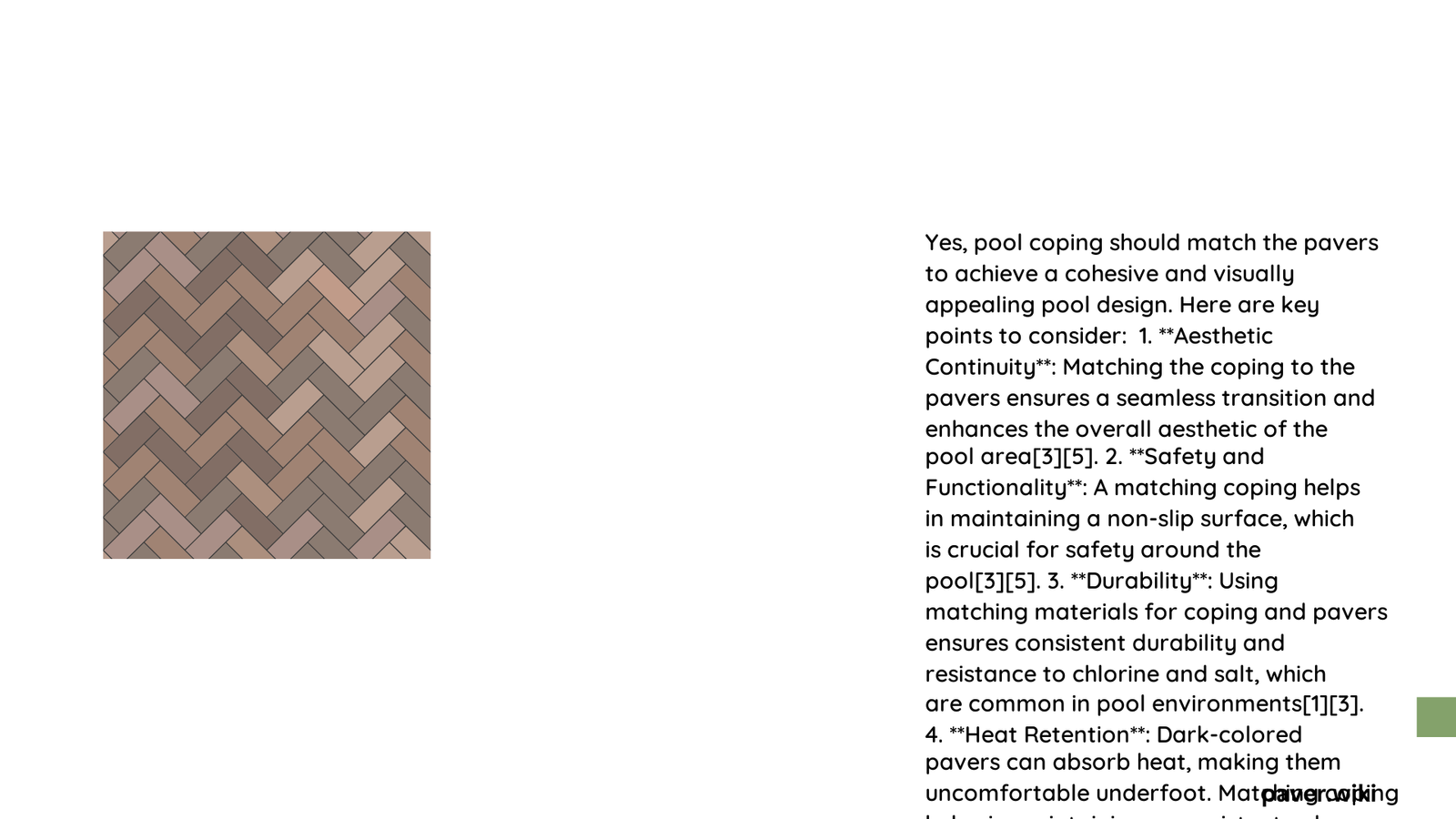Pool landscaping requires meticulous attention to detail, especially when coordinating pool coping with surrounding pavers. Homeowners and designers face critical decisions about material compatibility, color harmony, and aesthetic cohesion. Understanding the nuanced relationship between pool coping and pavers can transform an ordinary pool area into an extraordinary outdoor living space, ensuring visual appeal, functional performance, and long-term durability.
Why Does Pool Coping Material Matter?
Pool coping serves as a critical transition element between the pool shell and surrounding landscape. Selecting the right material and design ensures not just aesthetic harmony but also structural integrity and safety.
What Materials Work Best for Pool Coping and Pavers?
| Material Type | Compatibility | Durability | Aesthetic Appeal |
|---|---|---|---|
| Natural Stone | High | Excellent | Premium |
| Concrete | Very High | Good | Versatile |
| Porcelain | High | Excellent | Modern |
| Travertine | Moderate | Good | Luxurious |
Key Considerations for Material Selection
- Thermal Performance
- Choose materials with low heat absorption
- Prioritize light-colored stones for cooler surface temperatures
-
Consider slip resistance for wet environments
-
Color Coordination Strategies
- Select materials from same manufacturer/collection
- Use color charts for precise matching
- Consider subtle variations for natural aesthetic
How to Achieve Perfect Color Matching?
Achieving perfect color matching requires strategic approach:
- Professional Color Sampling
- Request multiple samples before final selection
- Compare materials under different lighting conditions
-
Consider natural and artificial light variations
-
Texture Consistency
- Match surface finish (polished, honed, textured)
- Ensure similar edge treatments
- Maintain consistent joint width
What Installation Techniques Ensure Seamless Integration?
Proper installation is crucial for matching pool coping and pavers:
- Precise Measurement
- Use professional-grade measuring tools
- Maintain consistent joint width (3-6mm recommended)
-
Level surfaces meticulously
-
Substrate Preparation
- Create stable, well-compacted base
- Use appropriate mortar/adhesive
- Allow proper curing time
Cost and Maintenance Considerations
| Factor | Impact | Recommendation |
|---|---|---|
| Initial Cost | High | Budget for quality materials |
| Maintenance | Moderate | Regular sealing recommended |
| Longevity | High | Choose premium materials |
Expert Recommendations
- Consult landscape design professionals
- Invest in high-quality materials
- Consider long-term aesthetic and functional requirements
- Plan for future maintenance
Conclusion

Matching pool coping with pavers requires careful consideration of materials, color, texture, and installation techniques. By following professional guidelines and investing in quality materials, homeowners can create stunning, cohesive pool landscapes that enhance property value and aesthetic appeal.
Pro Tips
- Always obtain multiple samples
- Consider climate and usage patterns
- Prioritize quality over immediate cost savings
Common Mistakes to Avoid
- Mismatched material properties
- Ignoring thermal performance
- Overlooking long-term maintenance requirements
Reference:
– Stone Depot Pool Coping Guide
– Whyte Gardens Pool Coping Styles
– Pool Stones Comprehensive Guide
